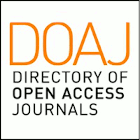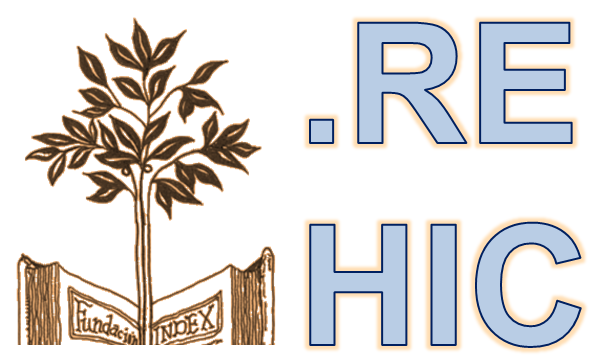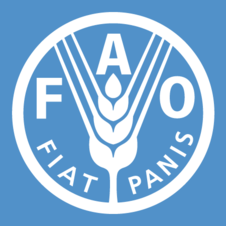SIGNIFICADOS DEL BIENESTAR SUBJETIVO EN TRABAJADORAS DE LA ECONOMIA INFORMAL (TIANGUIS) EN GUADALAJARA, MEXICO
Abstract
El objetivo de este estudio fue explorar los significados sociales del bienestar subjetivo en mujeres de la economía informal (tianguis) de la Ciudad de Guadalajara, México. Estudio de caso con generalización naturalista, seleccionadas por muestreo propositivo. Se realizaron grupos focales 7-12 vendedoras de comida en tres tianguis. El análisis de la información fue a través de contenido temático, con apoyo del programa ATLAS.TI. Entre los resultados se destaca que las mujeres expresaron el deseo de cambiar su vida, dicen sentirse preocupadas, cansadas y con estrés. Indican que ante este tipo de trabajo hay sentimientos de felicidad, orgullo, cariño y alegría. El dominio de satisfacción de la salud está presente en algunas de ellas, aunque otras la simbolizan como situación de enfado y la justifican el no tener tiempo para realizar chequeo médico, algunas de ellas practican algún deporte con fines saludables. Las participantes visibilizan este trabajo poco reconocido y sacrificado. Indican que están dispuestas a recibir información para ser mejores en sus familias y seguir luchando ante todas las adversidades de desigualdad e inequidad laboral.
Abstract
The objective of this study was to explore the social meanings of subjective in the informal economy (street marker or tianguis) of the city of Guadalajara, Mexico women welfare. Case with naturalist generalization, study selected by propositive sampling. 7-12 Food vendors focus groups were conducted in three tianguis. Analysis of the information was through thematic content, with the support of the ATLAS.TI programme. The results include women expressed the desire to change your life, say feel concerned, tired and stress. Indicate that there are feelings of pride, love, happiness and joy to this type of work. The satisfaction of the health domain is present in some of them, while others symbolized it as situation of anger and justified not have time to perform medical check some of them practice some sport healthy purposes. Participants visibilizan this little recognized and sacrificed work. Indicate that they are willing to receive information to be better in their families and continue the fight against all the adversities of inequality and inequity labour.
Palabras claves: Bienestar Subjetivo, Mujeres, Grupos Focales
Downloads
References
Organización Internacional del Trabajo (OIT) 2002. Informe VI: el trabajo decente y la economía informal. Conferencia Internacional del Trabajo, 90ª reunión, Ginebra.
Organización Internacional de Trabajo (OIT) 2007. Promover el trabajo decente para todos., http://www.ilo.org/global.
Comisión Económica para América Latina y el Caribe (CEPAL) 2007. Panorama Social de América Latina 1999-2000. Santiago de Chile.. http://www.eclac.org/
Grupo Consultivo en Genero Ministerio de Agricultura Ganadería y Alimentación. 1996. Vocabulario referido a Género. Unidad regional de Asistencia Técnica Plan de Acción Forestal para Guatemala.
Hernández, G. y H. González, 2000 Cáncer cérvico uterino: una mirada desde la perspectiva de género. En Análisis cualitativo en salud. En: Mercado MF, Torres LT. Análisis cualitativo en salud, teoría, método y práctica. México: Editorial Plaza y Valdez; 253-266 pp
Donoso, T.N. 2004. Construccionismo social: Aplicación del Grupo de Discusión en Praxis de Equipo Reflexivo en la Investigación Científica. Rev. de Psic. de la Univ de Chile, Vol.13, No.001: 9-20.
Diener, E. 1994. El bienestar subjetivo. Intervención Psicosocial. Rev. Sobre igualdad y calidad de vida. Vol. 3; No.8: 67-113.
Argyle, M. 1992. La Psicología de la felicidad. Alianza Editorial, Madrid.
Fierro, A. 2000. Sobre la vida feliz. Madrid, Edit. Aljibe. p.219
Veenhoven, R. 1994 El estudio de la satisfacción con la vida. Intervención Psicosocial. Vol.3: 87-116.
Rojas, C.R. 2007. El bienestar subjetivo en México y su relación con indicadores objetivos. Consideraciones para la Política pública. Universidad de las Américas, Puebla.
Cuadra, L.y U.Florenzano, 2003. El bienestar subjetivo: hacia una Psicología positiva.. Psic. de la Univ. de Chile. Vol
; No.1: 83-96.
Díaz, G. 2004. El bienestar subjetivo, actualidad y perspectivas". Rev Cub de Med Int. Vol. 17; No.6: 572579.
Mercado, M.F., F.M.Villaseñor y G.A.Lizardi, 2000. Situación actual de la investigación cualitativa en salud. Rev Universidad de Guadalajara. Vol. 17; 19-30
Yin 1984 Case study research: Design and methods. Bervely Hills- California: Sage
Bourdieu, P. 1999. La miseria del mundo. Fondo de Cultura Económica, Buenos Aires.
Miles, M.B. y A.M.Huberman, 1994. Qualitative data analysis: An Expanded Sourcebook, Newbury Park; 2 nd, ed., Sage Publications.
Minayo, M.C. 1995. Desafio del conocimiento, investigación cualitativa en salud. Brasil, Colección Salud Colectiva.
Organización Internacional del Trabajo, (OIT) 2007. http://www.oit,org/oublic/spanish.
Habermas, J. 1987. Teoría de la Acción Comunicativa. Madrid, Edit. Taurus.
Reich, K. 1993 Systemisch Konstruktivistisch Pedagogik. Neuwied: Luchterhand Salacuse, Jeswald W. International erfolgreich Verhandeln Frankfurt: Wilhem Heyne Verlag Gmbh.
Lawton, M.P. 1972. The dimension of morale. En: Kent D.F: Research planning and action for the elderly: the power and action of social science. New York: Behavioral Publications, 144-65pp
Abreu, A. 2006. Perspectiva de salud integral, las condiciones de vida y de trabajo de las mujeres “buhoneras”. Tesis de Maestría. Venezuela.
Díaz, G. 2004., et al Op. cit
Robinson, M.D, J.T.Jonson, S.A.Shields, et al. 1998. La heurística de género y la base de datos: Factores que influyen en la percepción de las cuestiones de género relacionadas con las diferencias en la experiencia de visualización y de emociones. Básica y Aplicada Psicología Social. Vol. 20: 206-219.
Diener, E. y Biswas, R. 2001 Will Money increase subjetive well-being social, Indicartors Research, 1-51.
Aldrete, M.G. 2008 Condiciones laborales de las mujeres en los tianguis de Guadalajara. En Género y Salud; compiladora: Martha VF. 1 ed. Instituto Municipal de las Mujeres; Guadalajara, México. 191-201pp
Secretaría de Desarrollo Económico (SDE), 2003 Gobierno del Distrito Federal, Fondo para el desarrollo social de la ciudad de México.
Muster, B. 2006. Mujer, Trabajo y Empleo. Instituto Cubano de Amistad con los Pueblos. Dirección de Información y Análisis. http://www.icap.cu/vcubana/mujer_trabajo_empleo.html
Downloads
Published
How to Cite
Issue
Section
License
The rights of the work belong to the author or authors, however, by sending it for publication in the Public Health and Nutrition Magazine of the Faculty of Public Health and Nutrition of the Autonomous University of Nuevo León, they grant the right for its first publication in between electronic, and possibly, in print to the Public Health and Nutrition Magazine. The license used is the Creative Commons attribution, which allows third parties to use what is published whenever the authorship of the work is mentioned and the first publication that is in the Public Health and Nutrition Magazine. Likewise, the author or authors will take into account that it will not be allowed to send the publication to any other journal, regardless of the format. The authors will be able to make other independent and additional contractual agreements for the non-exclusive distribution of the version of the article published in the Public Health and Nutrition Magazine (e.g., institutional repository or publication in a book) provided they clearly state that The work was published for the first time in the Public Health Magazine, Magazine of the Faculty of Public Health and Nutrition of the Autonomous University of Nuevo León.










